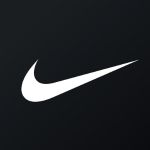Nike, Inc. is a global company in the consumer cyclical sector, operating within the footwear and athletic apparel industry. It was founded by Bill Bowerman and Philip Knight and is widely recognized as the largest supplier of athletic shoes and apparel in the world.
Nike sells its products in more than 170 countries, utilizing both physical retail stores and e-commerce platforms. Its product portfolio includes a wide variety of offerings for men, women, and children, designed for both specific sports activities and casual or lifestyle use.
Nike’s product lines include:
-
Athletic and casual footwear
-
Apparel for sports and everyday wear
-
Sports equipment, such as balls, gloves, bags, socks, eyewear, watches, electronics, and protective gear for various sports
The company operates through a global production chain, with most of its footwear and apparel manufactured outside the United States, while its sports equipment is produced both in the U.S. and abroad. In addition to direct sales, Nike generates revenue through licensing agreements, allowing third parties to manufacture and sell products under its brand.
Nike also owns and markets globally recognized brands such as Converse, All Star, One Star, Star Chevron, and Jack Purcell, and has previously held ownership of the football-focused Umbro brand.
Nike shares are traded on the New York Stock Exchange (NYSE) under the ticker NKE.
History and Founding of Nike, Inc.
Although officially founded in 1972, Nike’s origins trace back to 1964, when Bill Bowerman, a track coach, and Philip Knight, his former student, created Blue Ribbon Sports (BRS). Initially, the company operated as a distributor for the Japanese brand Onitsuka Tiger, now known as Asics.
In 1971, after ending its partnership with Onitsuka, the company was renamed Nike, inspired by the Greek goddess of victory. That same year, graphic design student Carolyn Davidson created the now-iconic Swoosh logo, which she sold to Nike for just $35, symbolizing motion and speed.
In 1978, Nike expanded into Europe and South America, solidifying its international presence and investing heavily in sports marketing, including athlete endorsements and team sponsorships—particularly in football and track & field.
Nike went public in 1980, listing its shares on the NYSE, which helped fuel global growth and supported the diversification of its product portfolio. The company also established its first research and development lab, focusing on ergonomic and biomechanical product testing to drive innovation.
In the following decades, Nike expanded through strategic acquisitions, including Converse and Cole Haan, extending its reach beyond athletic gear into the casual fashion market.
Nike entered the Brazilian market in 1988 but only opened its first branded store in 2008, further solidifying its position in Latin America as a leading sportswear brand.
Between 2020 and 2024, Nike continued expanding its focus on sustainability, investing in recycled materials and carbon reduction technologies, while strengthening its e-commerce capabilities and capitalizing on the athleisure trend—the fusion of sportswear with everyday fashion.
Today, Nike remains a global leader in the athletic wear industry, committed to innovation, performance, and serving both professional athletes and everyday consumers around the world.
Additional Information
The Company Nike INC (United States), is listed on NYSE with a market value of $ 96.19 Billions, having an equity of $ 14.09 Billions.
With a total of 75.400 employees, the company is listed in the sector of Consumer Cyclical and categorized in industry of Footwear & Accessories.
In the last 12 months the Company had a revenue of $ 46.51 Billions, which generated a profit in the amount of $ 2.52 Billions.
As for its main indicators, the Company has a P/E ratio of 38.11, a P/BV ratio of 6.83 and in the last 12 months the dividend yield of NKE was at 2.48%.
The Company is traded internationally through the ticker NKE.







 Tesla
Tesla


























